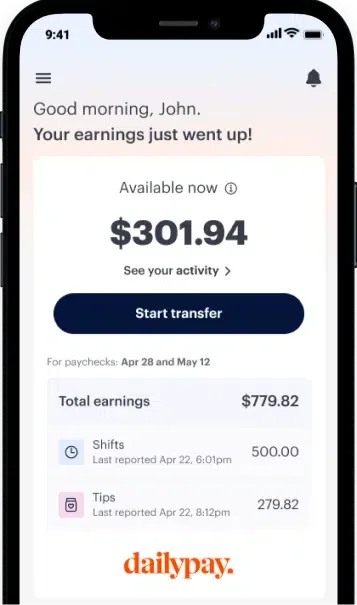The definitive cause of inflation is tough to pin down. Many economists point to a collection of factors, such as the pandemic, supply chain issues, increased production costs, and an uptick in demand. What matters most is how it could impact your finances. Here’s a look at how you might feel the effects of inflation in your day-to-day life.
1. Higher price tags are real.
Inflation is characterized by rising prices for consumer goods and services. That means your money may not go as far as it used to. The housing market is a good example. On a national level, asking rents have increased 11% year-over-year, according to the National Association of Realtors. Meanwhile, AAA reports that at the time of this writing, the national average gas price is $4.59 per gallon. Perhaps the biggest effect of inflation is that it will likely reduce your overall purchasing power.
2. You may have to rethink your retirement plan.
Saving early and steadily is an oft-repeated rule of thumb when it comes to retirement saving. Whether you’re 30 years away from retiring or are closer to exiting the workforce, inflation could disrupt your plans. Those who are further out from retirement may choose to dial up their exposure to stocks. It could help them net the kind of long-term returns they may need over the long run (though it’s worth noting that returns are never a sure thing). New retirees could also be affected if they’re on a fixed income and their dollars aren’t going as far as they used to. This is all to say that connecting with a financial professional could help you recalibrate your retirement plans accordingly.
3. Interest rates will likely go up.
It’s expected that the Federal Reserve will increase the federal funds interest rate this year. Bumping up rates is a primary way of cooling inflation. When interest rates go up, it makes it more expensive to borrow money. That means consumers will likely face higher rates on credit cards, auto loans, mortgages, and other types of financing. If you’re looking to refinance your mortgage or take out a new credit card or loan, you could encounter steeper charges if rates go up.
Preparing your finances against inflation.
It isn’t really possible to avoid the effects of inflation. When all is said and done, we all have to pay for basic goods and services. Rising prices can directly impact your household budget. One potential way to soften the blow is to revisit your spending plan. Popular budgeting methods include the 50/30/20 rule and zero-based budgeting. Both are designed to help increase financial awareness and prevent overspending. They’re structured a little differently, but understanding how they work can help you find a budgeting style that works for you.
From there, see if there are any unnecessary expenses you can cut out of your budget. Doing away with extra subscription services or bringing down your discretionary spending, for example, could free up extra funds each month. You might also explore meal planning, canceling cable, or debt consolidation to potentially save even more. These suggestions might all help your income go a little further.
Another idea is finding ways to increase your income. Maybe that means exploring a side hustle, whether that’s taking on freelance or consulting gigs in your industry or trying something completely different—like driving for a ride-share app, waiting tables, babysitting, tutoring, or other side jobs that play on your strengths. You might also think about approaching your current employer to see if there are any opportunities there, such as overtime or asking for a pay raise if it’s warranted. Some workers might entertain the idea of changing jobs altogether. Since the pandemic began, 20% of Americans have changed careers, according to a survey conducted by The Motley Fool.
There isn’t one right or wrong way to navigate inflation. The idea is to bring down your expenses and (in an ideal world) bump up your income. Time will tell how long it will take for inflation to cool off.

